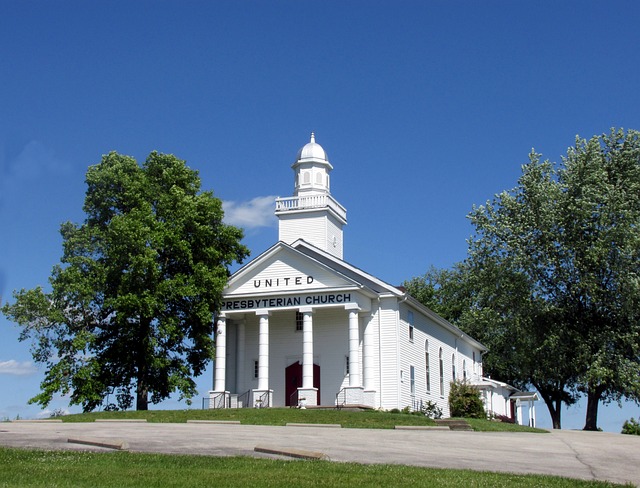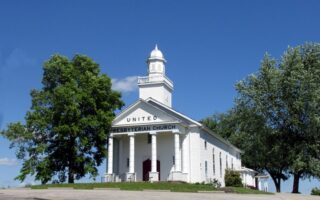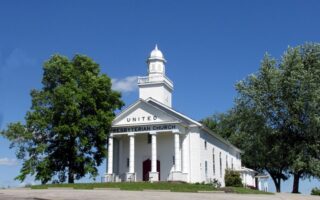Presbyterians are a Protestant Christian denomination that originated in Scotland during the 16th century. They are known for their adherence to the principles of Calvinism and their form of church governance, which is characterized by the rule of elders or presbyters. When it comes to the question of whether Presbyterians are considered “high” or “low,” it is important to note that these terms are typically used in the context of Anglicanism and refer to different liturgical practices and theological emphases. Therefore, it is not accurate to categorize Presbyterians as either “high” or “low” within this specific framework.
Table of Contents
The Historical Origins of Presbyterianism
Presbyterianism is a branch of Protestant Christianity that originated in Scotland during the 16th century. It is known for its unique system of church governance, which is based on the idea of rule by elders, or presbyters. But when it comes to the question of whether Presbyterians are considered high or low, the answer is not as straightforward as it may seem.
To understand the historical origins of Presbyterianism, we need to go back to the time of the Protestant Reformation. In the 16th century, Scotland was a predominantly Catholic country, but the ideas of the Reformation began to take hold. One of the key figures in this movement was John Knox, a Scottish clergyman who had studied under John Calvin in Geneva.
Knox returned to Scotland and became a leading figure in the Reformation, advocating for a more democratic form of church governance. He believed that the church should be governed by a body of elders, rather than by bishops or other hierarchical structures. This idea of rule by elders became a central tenet of Presbyterianism.
The term “high church” and “low church” originated in England during the 17th century, but they are often used to describe different religious traditions within Protestantism. High church traditions tend to emphasize liturgy, sacraments, and a hierarchical structure, while low church traditions place more emphasis on personal faith, scripture, and a less formal worship style.
In this context, Presbyterians are often considered to be on the “low church” end of the spectrum. This is because Presbyterian worship services tend to be more simple and focused on preaching and the reading of scripture. There is less emphasis on elaborate rituals or sacraments, and the church governance is based on the democratic principle of rule by elders.
However, it is important to note that not all Presbyterians fit neatly into this categorization. There is a wide diversity of beliefs and practices within the Presbyterian tradition, and some Presbyterian churches may have more high church elements, such as the use of liturgy or sacraments.
Furthermore, the distinction between high and low church is not a definitive one. Many Protestant churches, including Presbyterians, have elements of both high and low church traditions. It is more accurate to think of these terms as a spectrum, with different churches and individuals falling at different points along that spectrum.
In conclusion, the historical origins of Presbyterianism can be traced back to the Protestant Reformation in Scotland. The idea of rule by elders, or presbyters, became a central tenet of the Presbyterian tradition. While Presbyterians are often considered to be on the “low church” end of the spectrum, it is important to recognize the diversity within the tradition and the fact that not all Presbyterians fit neatly into this categorization. Ultimately, the question of whether Presbyterians are high or low is not as important as the shared beliefs and values that unite them as a community of faith.
Understanding the Doctrinal Beliefs of Presbyterians

Are Presbyterians high or low? This is a question that often comes up when discussing the doctrinal beliefs of Presbyterians. To understand the answer, it is important to delve into the core principles and teachings of this Christian denomination.
Presbyterians are known for their adherence to a system of church government called Presbyterianism. This system is characterized by the rule of elders, who are elected by the congregation and serve as spiritual leaders and decision-makers within the church. This form of governance is often referred to as “high church” because of its emphasis on the authority of the church and its leaders.
However, when people ask if Presbyterians are high or low, they are usually referring to the theological beliefs of the denomination. In this context, “high” and “low” refer to the degree of emphasis placed on certain theological doctrines.
Presbyterians are generally considered to be “high” when it comes to their view of God’s sovereignty. They believe that God is in control of all things and that nothing happens outside of His will. This belief is often referred to as “predestination” or “election.” According to this doctrine, God has chosen certain individuals for salvation before the foundation of the world, and nothing can thwart His purposes.
This emphasis on God’s sovereignty can sometimes lead to a perception of Presbyterians as being “high and mighty” or arrogant in their beliefs. However, most Presbyterians would argue that their belief in God’s sovereignty is not meant to diminish human responsibility or free will. Instead, they see it as a comforting assurance that God is in control and that His plans will ultimately prevail.
On the other hand, Presbyterians are often considered to be “low” when it comes to their view of sacraments. Unlike some other Christian denominations, Presbyterians do not believe that the sacraments, such as baptism and the Lord’s Supper, are necessary for salvation. Instead, they view them as outward signs of inward grace, symbols that point to the work of Christ in the lives of believers.
This “low” view of sacraments is often misunderstood as a lack of importance or reverence for these practices. However, Presbyterians still value the sacraments and believe that they are important means of grace. They simply do not believe that participation in the sacraments is a requirement for salvation.
In addition to these theological beliefs, Presbyterians also hold to a set of core doctrines known as the Westminster Standards. These standards include the Westminster Confession of Faith, the Larger Catechism, and the Shorter Catechism. These documents outline the beliefs and teachings of the Presbyterian Church and serve as a guide for its members.
So, are Presbyterians high or low? The answer is both. They are “high” in their emphasis on God’s sovereignty and the authority of the church, and “low” in their view of sacraments. However, it is important to remember that these labels do not define the entirety of their beliefs. Presbyterians, like any other Christian denomination, have a wide range of beliefs and practices within their ranks.
In conclusion, understanding the doctrinal beliefs of Presbyterians requires a nuanced approach. While they may be considered “high” in some areas and “low” in others, it is important to recognize the diversity within the denomination and to engage in respectful dialogue when discussing these beliefs.
Examining the Worship Practices of Presbyterians
Are Presbyterians high or low? It’s a question that often comes up when discussing the worship practices of this particular Christian denomination. To answer this question, we need to take a closer look at what exactly it means to be “high” or “low” in the context of Presbyterian worship.
Firstly, let’s define what these terms mean. In general, “high church” refers to a style of worship that is more formal and traditional, often characterized by elaborate rituals, liturgical prayers, and a strong emphasis on sacraments. On the other hand, “low church” is typically associated with a more informal and contemporary style of worship, with a focus on personal spirituality and a less rigid approach to liturgy.
When it comes to Presbyterians, the answer is not as straightforward as labeling them as either high or low. This is because the worship practices of Presbyterians can vary greatly depending on the specific congregation and its individual beliefs and traditions. While some Presbyterian churches may lean more towards a high church style of worship, others may adopt a more low church approach.
One factor that influences the worship practices of Presbyterians is their theological beliefs. Presbyterians are known for their adherence to the Reformed tradition, which places a strong emphasis on the sovereignty of God and the authority of Scripture. This theological foundation often shapes the way they approach worship.
In Presbyterian worship, the preaching of the Word is typically given a central role. Sermons are seen as an opportunity for the congregation to engage with the Scriptures and apply them to their daily lives. This focus on the Word of God can be seen as a characteristic of both high and low church traditions within Presbyterianism.
Another aspect of Presbyterian worship that can vary is the use of liturgy. Some Presbyterian churches may follow a more structured liturgical format, incorporating elements such as responsive readings, recitation of creeds, and the observance of sacraments like baptism and communion. This can be seen as a high church influence.
However, other Presbyterian churches may adopt a more flexible approach to liturgy, allowing for spontaneity and individual expression. This can be seen as a low church influence, emphasizing the personal relationship between the worshipper and God.
Music also plays a significant role in Presbyterian worship. Hymns are commonly sung, with a mix of traditional hymns and contemporary worship songs. The style of music can vary depending on the congregation’s preferences and the resources available. Some churches may have a more formal choir-led approach, while others may have a more contemporary band-led style.
Ultimately, the question of whether Presbyterians are high or low in their worship practices is not easily answered. It is a diverse denomination with a range of beliefs and traditions. Some Presbyterian churches may lean more towards a high church style, while others may adopt a more low church approach. The important thing to remember is that regardless of the style of worship, Presbyterians are united in their commitment to the Word of God and their desire to worship and serve Him faithfully.
Exploring the Role of Leadership and Governance in Presbyterian Churches
Are Presbyterians high or low? This is a question that often comes up when discussing the role of leadership and governance in Presbyterian churches. To answer this question, we need to understand the unique structure and practices of Presbyterianism.
Presbyterianism is a form of Protestant Christianity that emphasizes the role of elders in church governance. The word “Presbyterian” comes from the Greek word “presbyteros,” which means elder. In Presbyterian churches, elders are elected by the congregation and serve as leaders and decision-makers.
One of the key principles of Presbyterianism is the idea of “the priesthood of all believers.” This means that every member of the church has a role to play in its leadership and governance. While elders hold a special position of authority, they are not seen as being above or superior to other members of the congregation. Instead, they are called to serve and guide the church in a spirit of humility and servanthood.
In Presbyterian churches, decisions are made through a process of discernment and consensus-building. This is often done through a system of committees and sessions, where elders and other members of the congregation come together to discuss and make decisions on important matters. This collaborative approach to leadership ensures that multiple perspectives are considered and that decisions are made in the best interest of the entire church community.
So, are Presbyterians high or low? The answer is neither. The role of leadership in Presbyterian churches is not about hierarchy or power, but about service and stewardship. Elders are called to be shepherds of the flock, guiding and caring for the congregation with love and compassion.
Another important aspect of Presbyterian leadership is accountability. Elders are accountable to the congregation and to each other. They are expected to uphold the values and teachings of the church and to act with integrity and honesty. This accountability helps to ensure that the leadership of the church remains focused on its mission and values.
In addition to elders, Presbyterian churches also have ministers who serve as spiritual leaders and teachers. Ministers are ordained and trained to preach the Word of God and to provide pastoral care to the congregation. While ministers have a different role than elders, they work together in partnership to lead and serve the church.
In conclusion, the role of leadership and governance in Presbyterian churches is not about being high or low, but about serving and guiding the congregation. Elders and ministers work together to provide spiritual leadership, make decisions, and care for the church community. The collaborative and accountable nature of Presbyterian leadership ensures that decisions are made in the best interest of the entire congregation. So, the next time someone asks if Presbyterians are high or low, you can confidently say that they are neither – they are simply called to serve and lead with love and humility.
Conclusion
Presbyterians are a Christian denomination that can be found across the world. They are known for their emphasis on the sovereignty of God, the authority of Scripture, and the importance of the community of believers. In terms of their theological beliefs and practices, Presbyterians are generally considered to be moderate or mainstream within the spectrum of Christian denominations.


